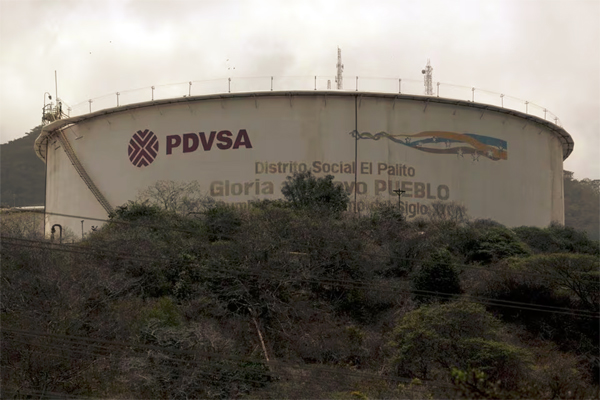
Marianna Parraga and Arathy Somasekhar, Reuters
HOUSTON
Energiesnet.com 11 10 2023
A broad easing of U.S. sanctions on Venezuela’s oil industry has forged marriages of convenience between global commodities traders and little-known middlemen that dominated its exports during the period of restrictions.
Washington in mid-October issued a general license lifting through April sanctions on the country’s oil production and exports.
With a view to ensuring a fair presidential election, the authorization is contingent on an electoral pact between President Nicolas Maduro’s government and Venezuela’s political opposition.
The U.S. has said it wants to see progress towards a transparent election as well as a release of political prisoners by Nov. 30 or it could reimpose the sanctions.
At least two trading houses – Trafigura (TRAFGF.UL) and Gunvor Group (GGL.UL) – in recent weeks have gained access to Venezuelan cargoes by buying from intermediaries approved by state oil firm PDVSA, according to company documents and four people familiar with the matter.
Trafigura and Gunvor declined to comment on the Venezuela oil activity. PDVSA did not reply to a request for comment.
The original purchases made by middlemen from PDVSA have bypassed the state company’s traditional tender system and often been subject to fixed price negotiations because the company, which remains under some sanctions, had no access to pricing services.
In all cases, PDVSA has demanded at least a portion of payment upfront in euros, limiting the pool of participating companies, according to two of the people and the documents.
The unusual arrangements have led to large differences in terms. “Price gaps from one offer to another for similar products can be as big as $15 per barrel,” one of the people said.
All of the sources declined to be named because they were not authorized to speak to the press.
For PDVSA, access to extra cash is an incentive to gain new customers and to limit the number of oil swaps and oil-for-loan deals that were the only options allowed by the U.S. sanction regime before the October license.
POLICY SHIFT
The U.S. imposed sanctions on Venezuela’s oil industry to try to oust President Nicolas Maduro, whose 2018 re-election it considers a sham. President Joe Biden’s administration has eased sanctions in the last year in a shift of policy.
In the last three weeks, PDVSA has signed new term deals to sell products, including fuel oil and asphalt cement with little known firms. It has yet to restore pre-sanctions supply contracts or reach long-term agreements with its traditional customers, but it has started negotiations.
Most global trading houses remain excluded from state oil company PDVSA’s commercial registry since a lawsuit was filed in a U.S. court in 2018 accusing a some traders, banks, and individuals of paying bribes to Venezuelan officials in exchange for inside information, fixed prices and rigged bids.
PDVSA, which in March made public that billions of dollars had been lost to failed cargo payments, last week sent an internal email reminding trade and supply executives to follow rules to give clearance to any new customers, another person said.
LINING UP
Shortly after sanctions were eased last month, Trafigura chartered a vessel to pick up a fuel oil cargo at a Venezuelan port.
The chartering contract is linked to an offer by PDVSA to sell up to 1 million barrels of fuel oil, the product of which it has the highest available inventories. The firm that won the offer is Romania-registered Ke Lo Ke Mgmt, PDVSA documents seen by Reuters showed.
The tanker in late October loaded a first 100,000-barrel parcel at the Cardon port on Venezuela’s western coast, and is waiting to load its remaining 300,000-barrel cargo, according to the documents and tanker tracking data.
It remains unclear if Ke Lo Ke made a back-to-back sale to Trafigura. Ke Lo Ke, which had not previously been a PDVSA customer, could not be reached for comment.
Days later, Gunvor offered 2 million barrels of Venezuela-origin heavy crude to U.S. refiners, according to Bloomberg.
PDVSA has distributed these and other sale offers by email to specific companies only, and it has requested fuel imports in the same way, two of the people said.
This week, PDVSA also limited the list of shipping agencies that are authorized to work with customers loading at its ports, one of the documents showed.
“These offers don’t meet compliance rules in many other oil companies. It’s a risk, and will pay off only for some,” one trader said.
Reporting by Marianna Parraga and Arathy Somasekhar; additional reporting by Gary McWilliams; editing by Barbara Lewis
reuters.com 09 11 2023












